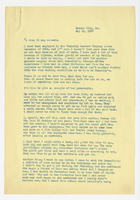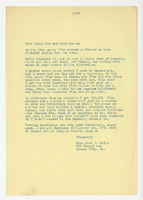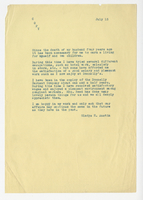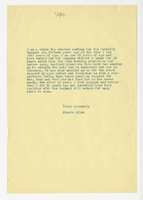All in a Day’s Work: What Mattered to the Letter Writers
Fair wages, safe working conditions, health insurance, and paid vacations—the workers who cut, stitched, pressed, and packed Nelly Don dresses consistently expressed a sense of satisfaction, even pride, in being employees of the Donnelly Garment Company (DGC). Their letters also provide a glimpse into how their jobs allowed them to support their families through the Great Depression and pursue their own dreams.





